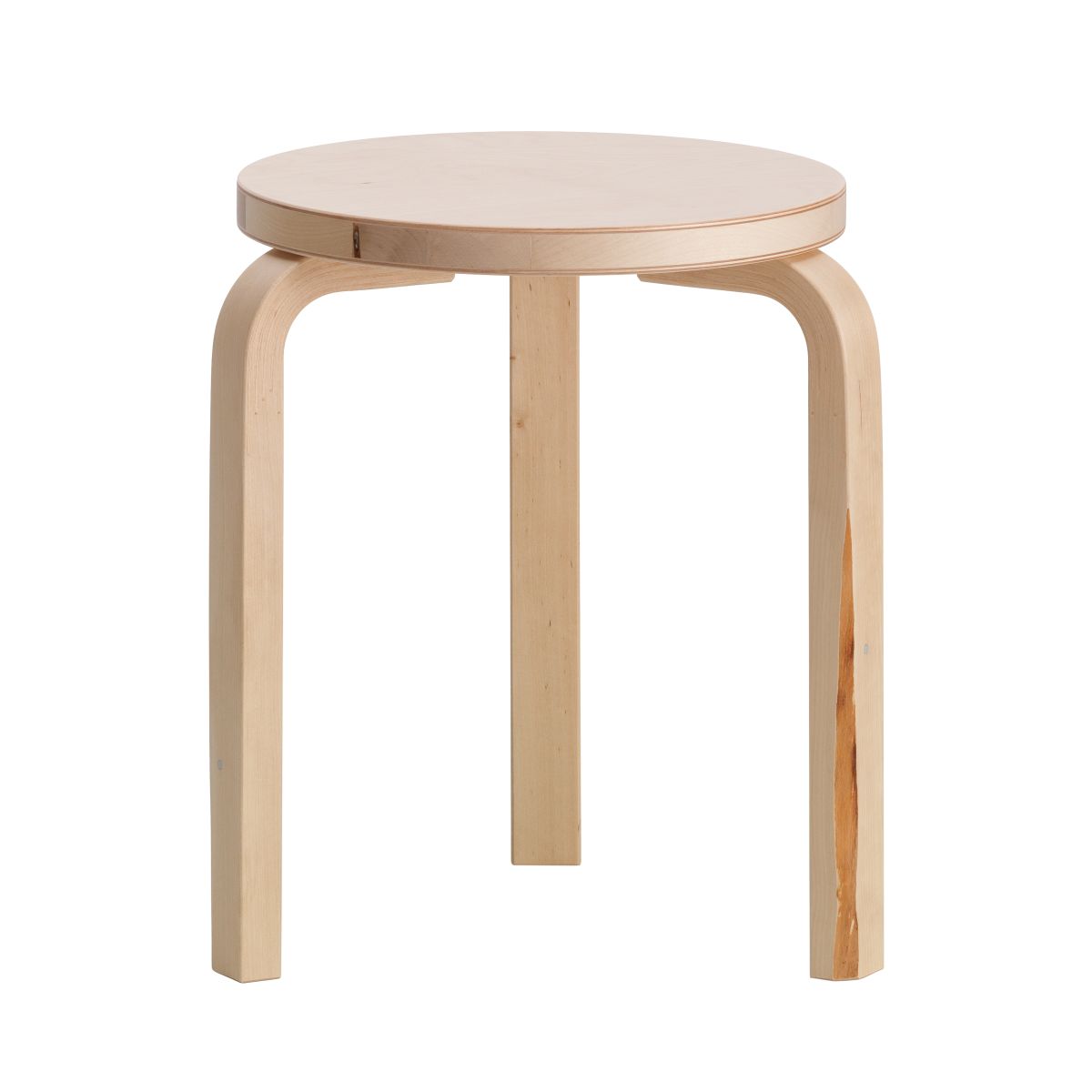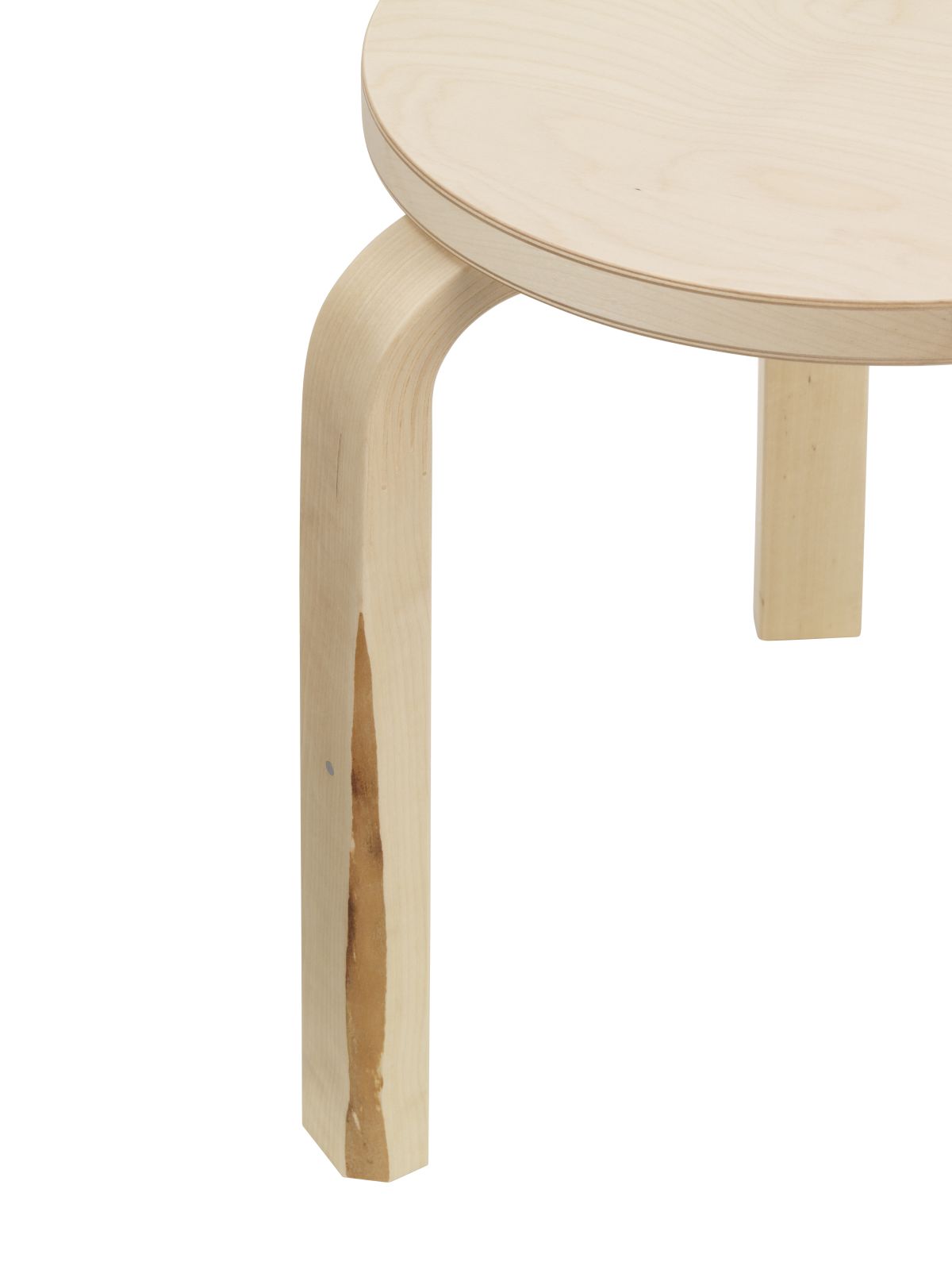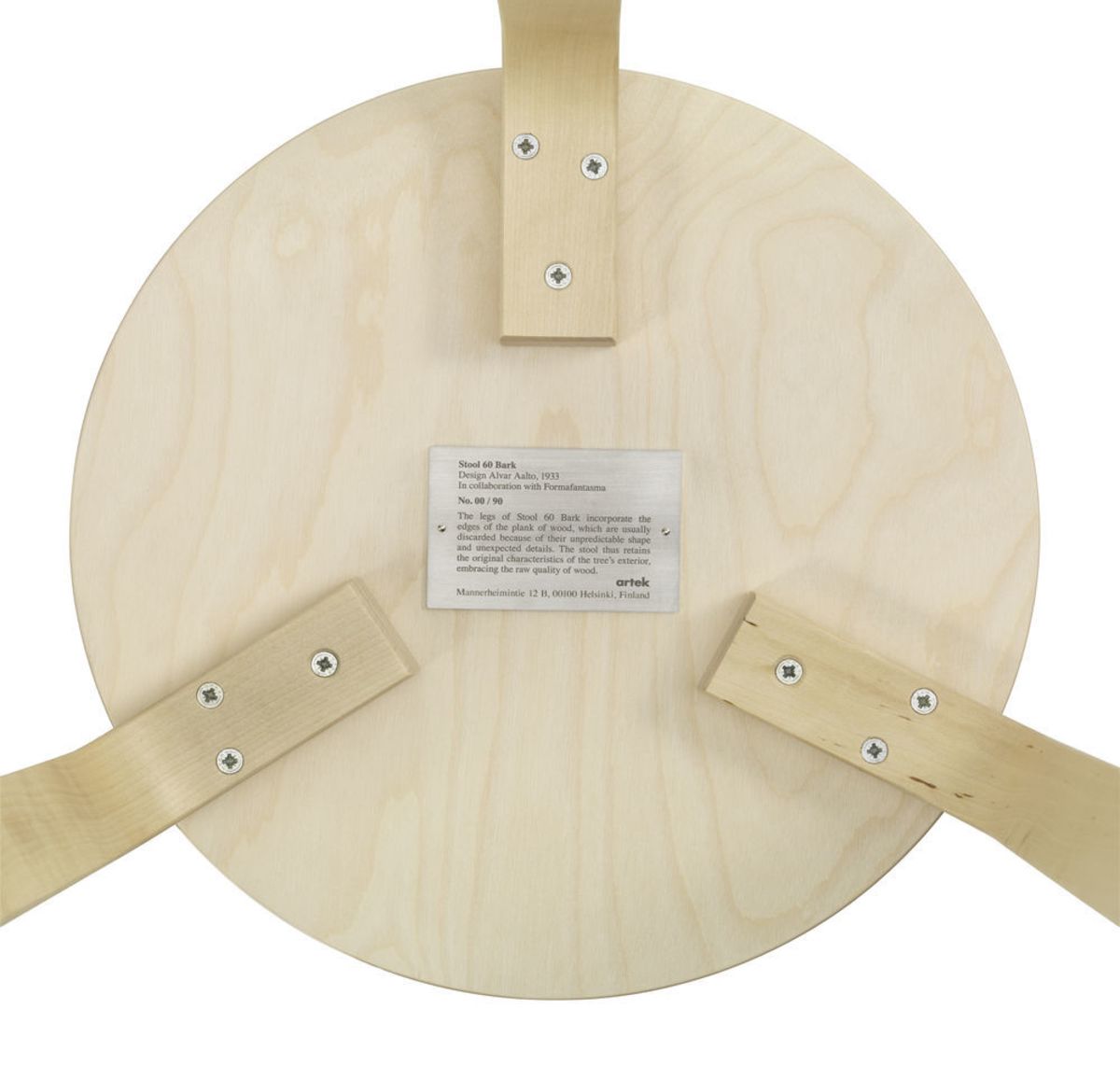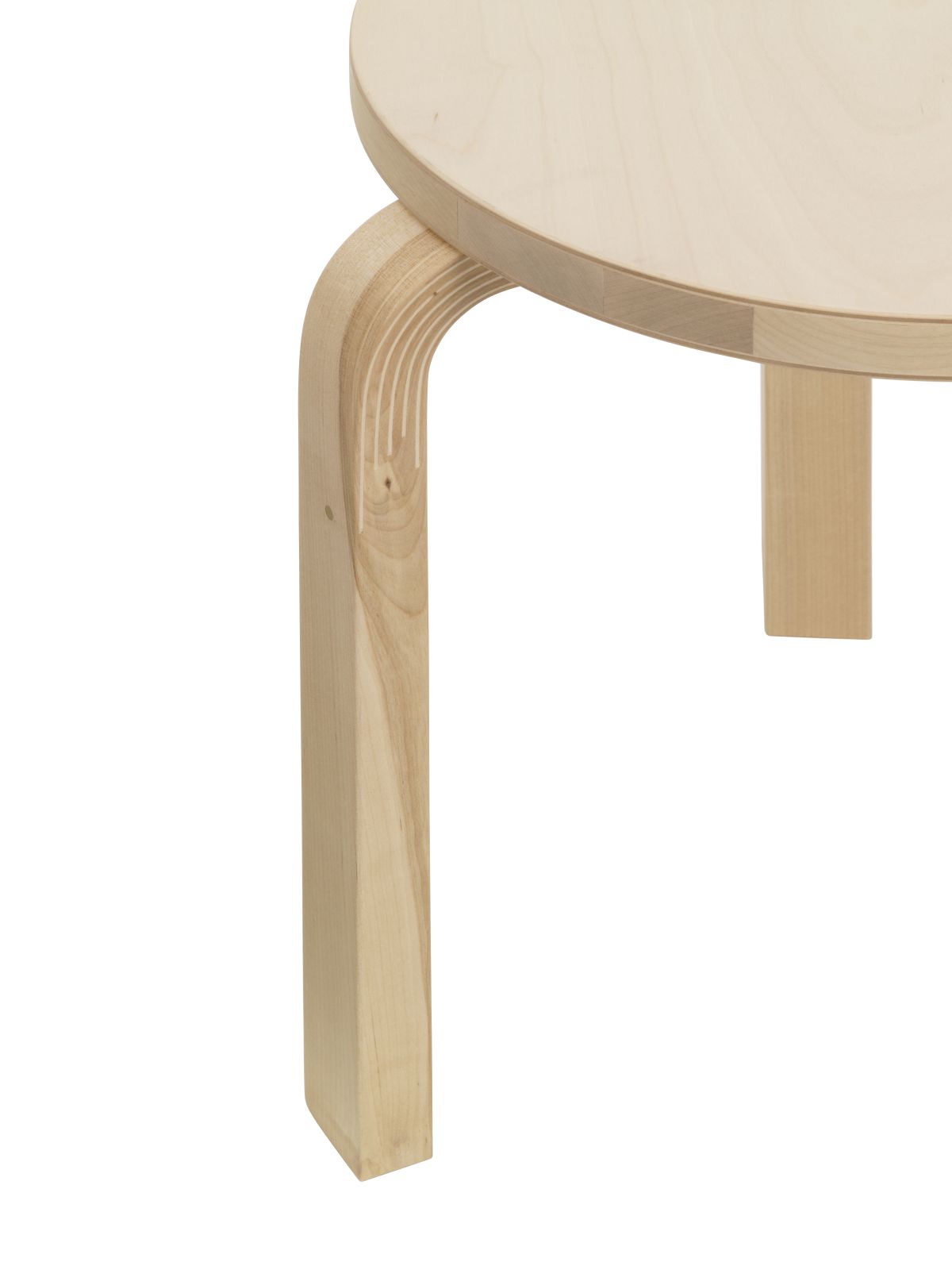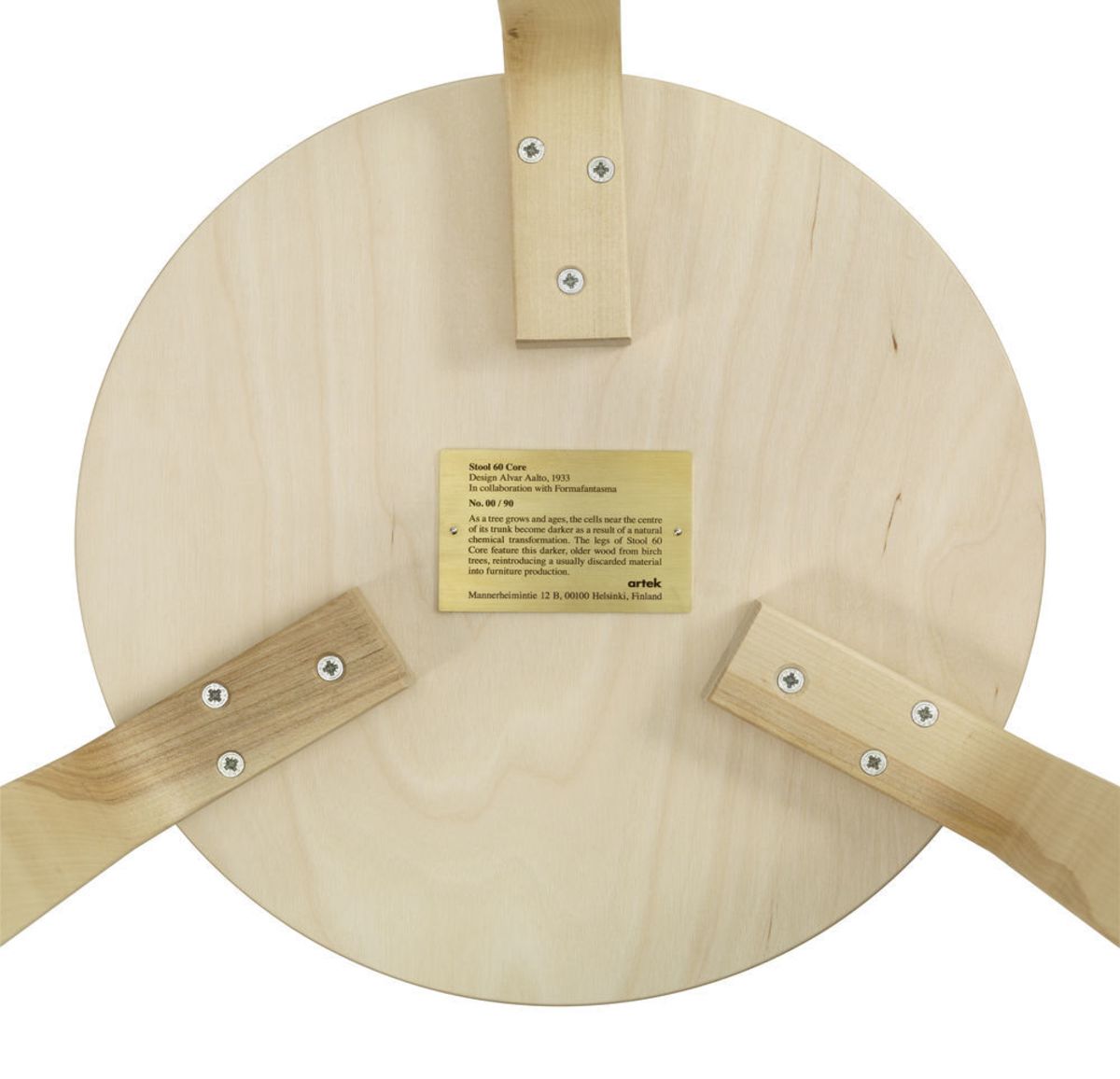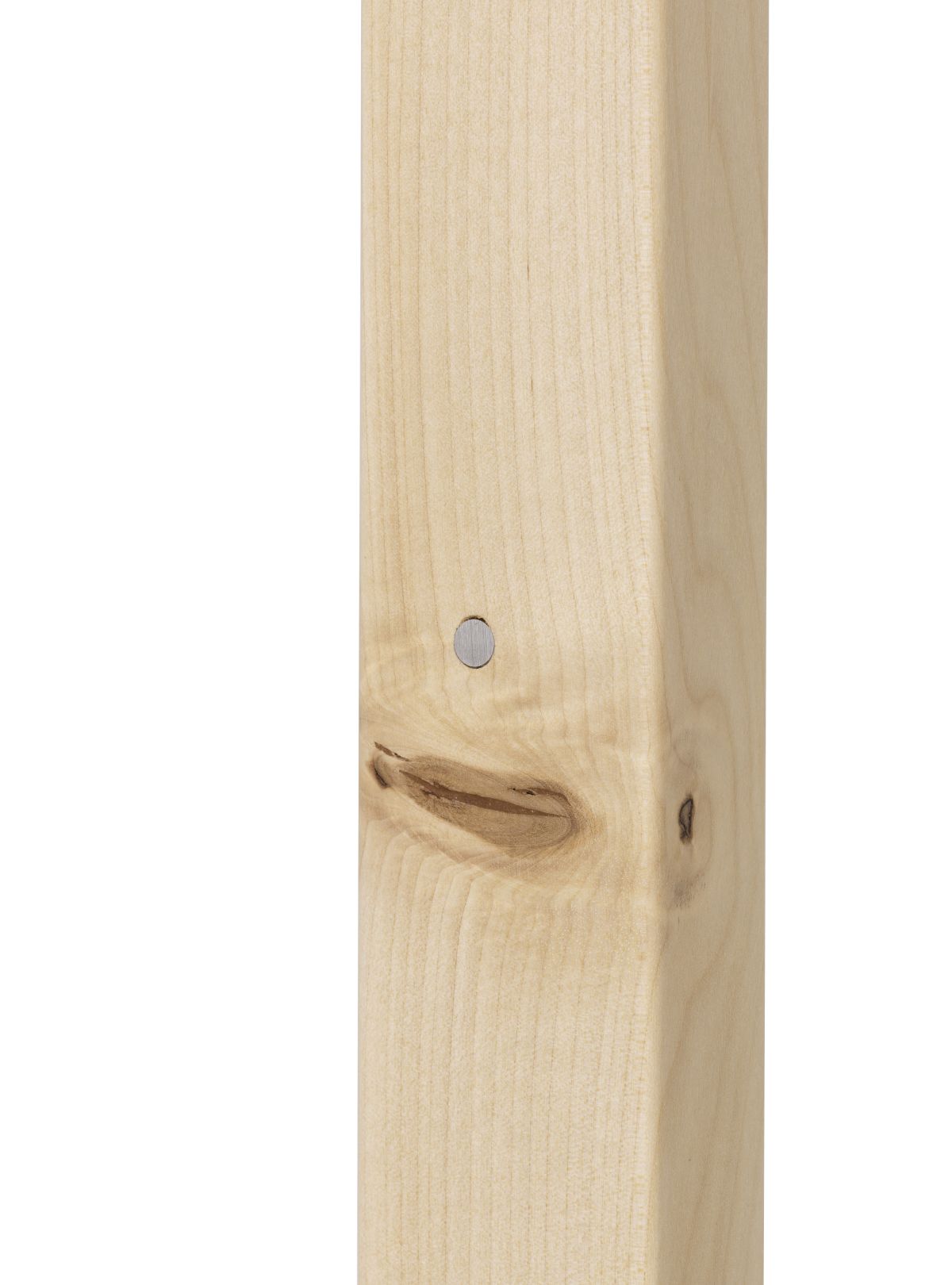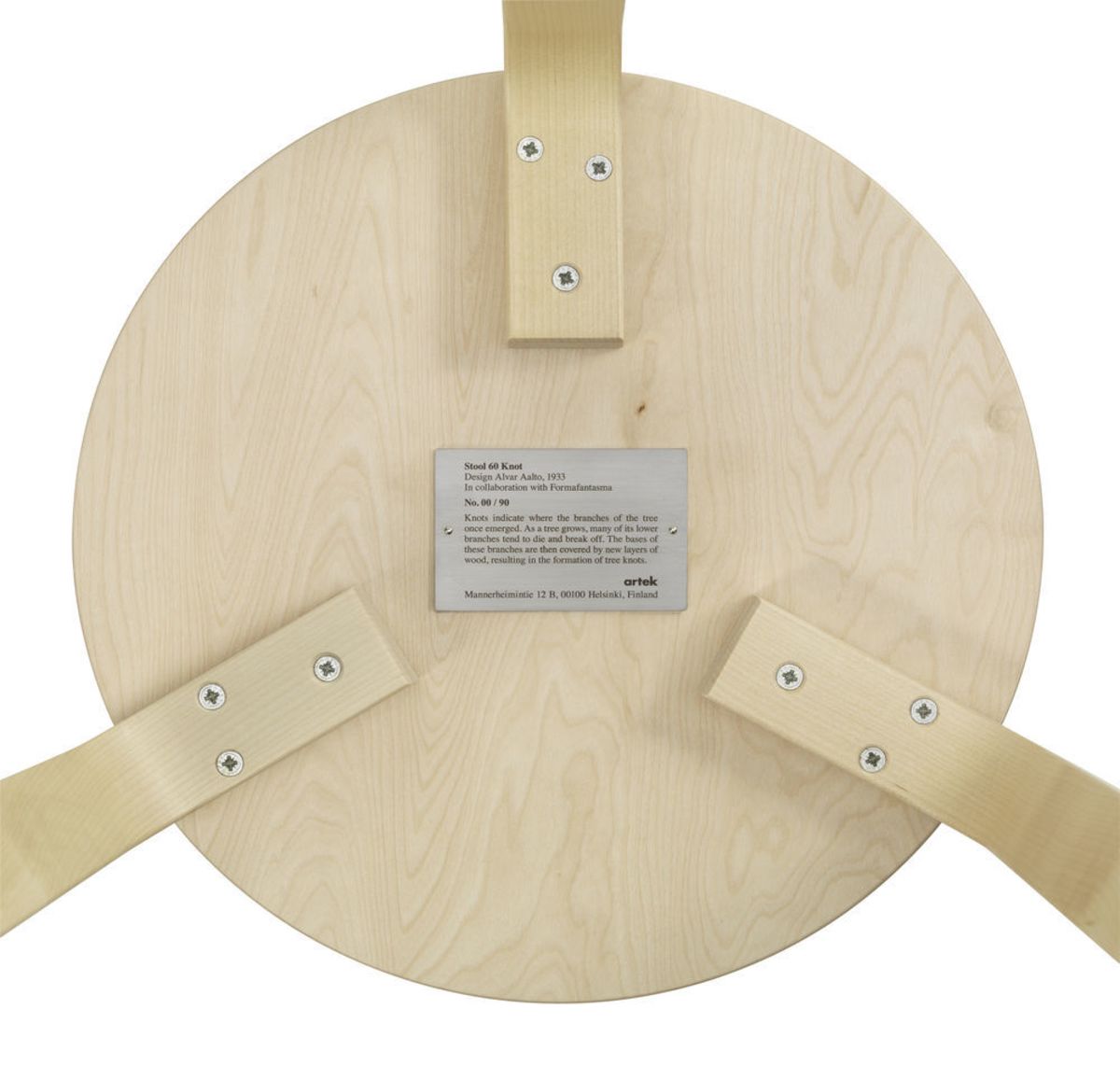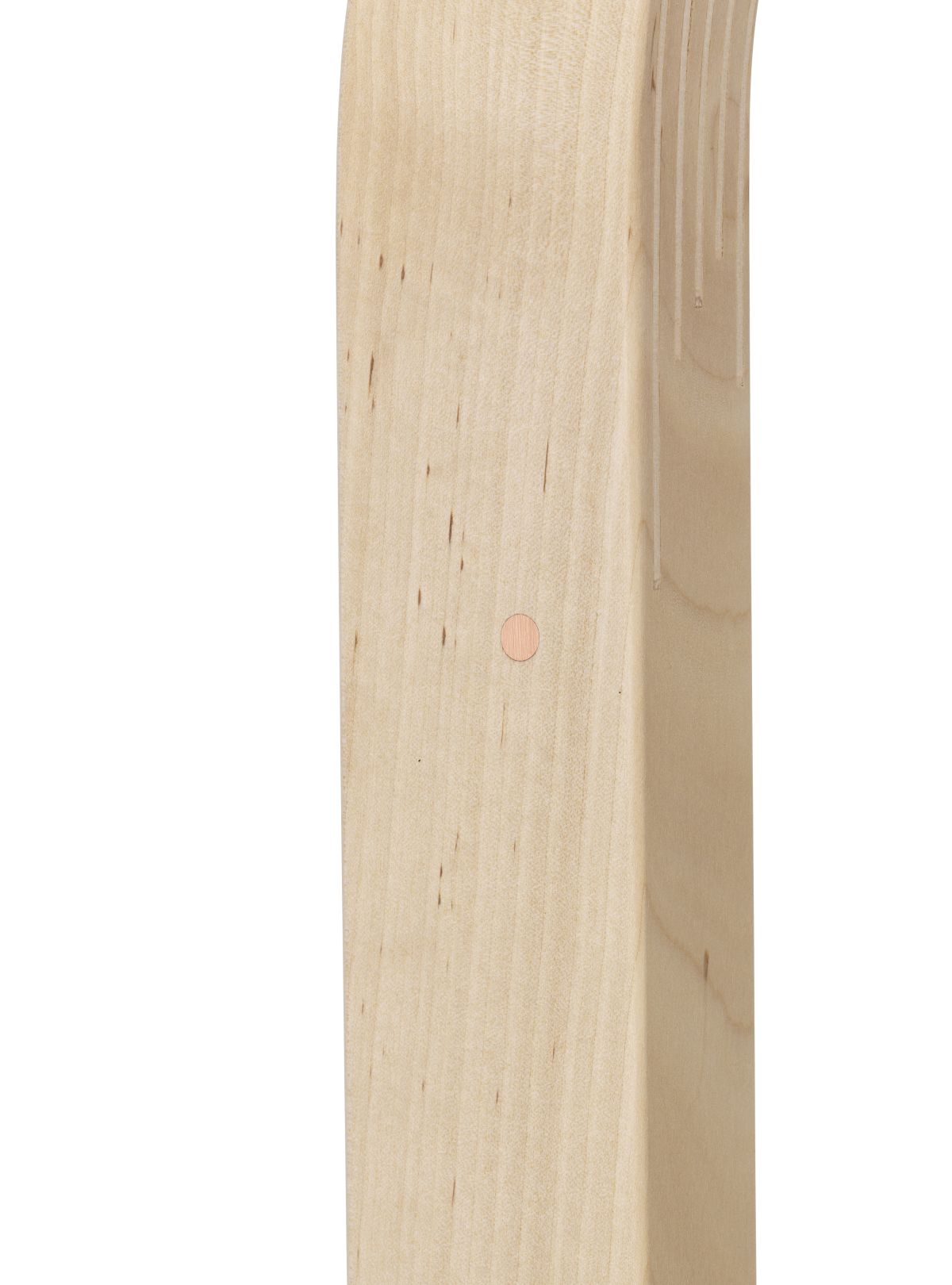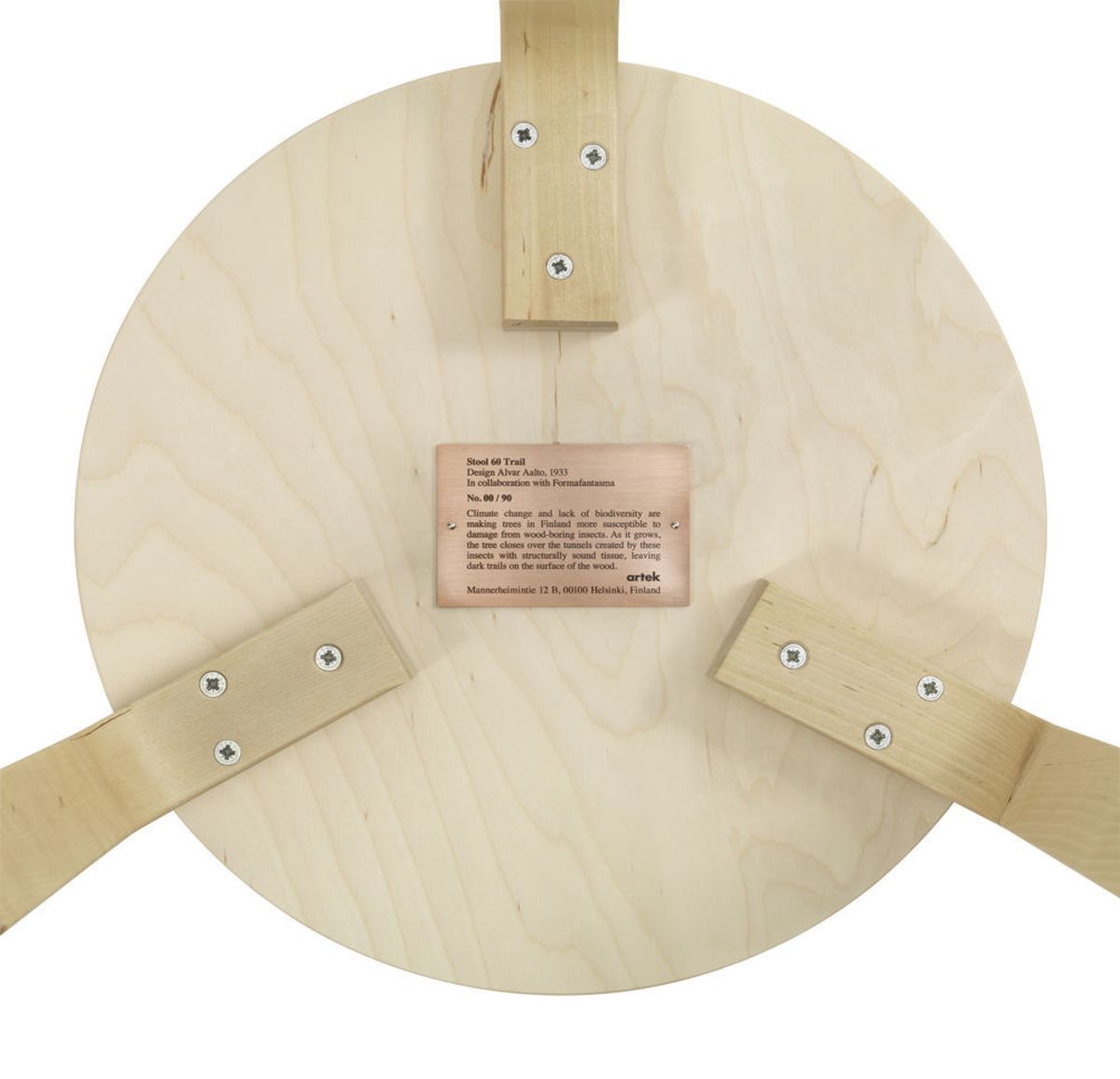Stool 60 Villi editions
For the stool’s anniversary celebrations Formafantasma developed five variations of Stool 60 – each celebrating the natural beauty of wood. Stool 60 Villi is made of “wild birch” and embraces all the opportunities and variabilities of the birch wood forest. A further four strictly limited variations of Stool 60 – Bark, Core, Knot and Trail – each specifically highlight one of these forest-centric features. Each stool includes a coded classification system of different metal studs and accompanying descriptive labels that, like product passports, identify the highlighted feature and offer an educative layer of information.

Stool 60 Bark
The legs of Stool 60 Bark incorporate the edges of the plank of wood, which are usually discarded because of their unpredictable shape and unexpected details. The stool thus retains the original characteristics of the tree’s exterior, embracing the raw quality of wood.
Stool 60 Bark
Stool 60 Core
As a tree grows and ages, the cells near the centre of its trunk become darker as a result of a natural chemical transformation. The legs of Stool 60 Core feature this darker, older wood from birch trees, reintroducing a second-choice material into furniture production.
Stool 60 Core
Stool 60 Knot
Knots indicate where the branches of the tree once emerged. As a tree grows, many of its lower branches tend to die and break off. The bases of these branches are then covered by new layers of wood, resulting in the formation of tree knots.
Stool 60 Knot
Stool 60 Trail
Climate change and lack of biodiversity are making trees in Finland more susceptible to damage from wood-boring insects. As it grows, the tree closes over the tunnels created by these insects with structurally sound tissue, leaving dark trails on the surface of the wood.
